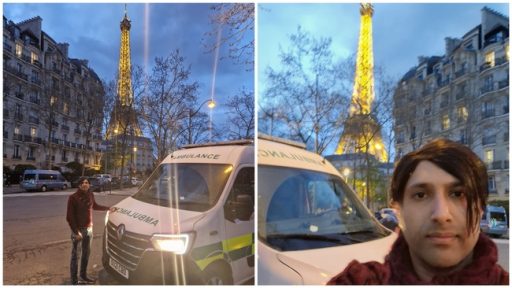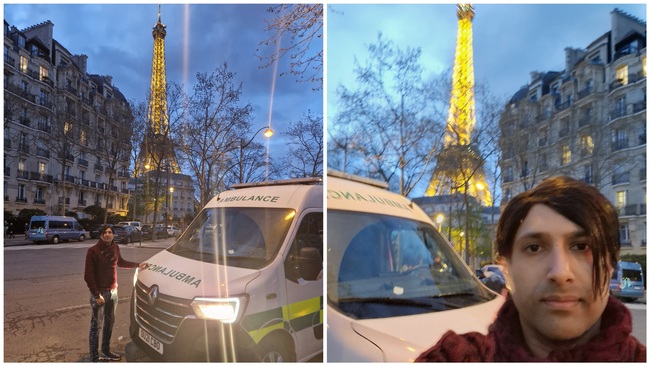Umran Ali Javaid, a Scottish student with a history of dispatching ambulances to conflict zones such as Ukraine and Syria, is currently undertaking a mission to deliver an ambulance to Gaza to assist civilians caught in the conflict. Over halfway to his destination, Javaid’s journey reflects a commitment to humanitarian aid.
Purchasing the ambulance in January and securing approval from COGAT in Israel by March, Javaid is set to arrive at the Rafah border within days, intending to hand the vehicle over to UNRWA, the key humanitarian body active in Gaza.
As a masters student in International Tourism and Event Management, Javaid emphasizes the critical role of such vehicles in conflict zones, stating, “During war innocent civilians especially children need help, the ambulance can transport those that are injured and infants as it is equipped with a neo-natal ventilator.”
His previous endeavours include delivering 40 second-hand ambulances to various conflict areas, notably facilitating medical support to a small hospital in Ukraine last September.
The bureaucratic process to cross into Gaza is extensive, necessitating coordination with COGAT in Israel and Egyptian authorities. Javaid’s route from Glasgow has spanned multiple European countries, with plans to traverse Greece, Turkey, and finally Egypt by ship, en route to the Rafah border.
Maintaining constant communication with relevant authorities, Javaid is buoyed by the support facilitating this mission. Reflecting on the journey, he shares poignant observations: “Innocent civilians are always the first to be impacted by the horrors of war. Heartbreaking to see what is going on in the region.”
He further notes the capabilities of British ambulances to provide critical medical aid and their design for safe evacuation in conflict zones: “British ambulances are equipped to help patients needing immediate medical support. They also have distinct marking and sirens which clearly identifies them, enabling them to evacuate civilians from danger zones.”
The dire need for medical equipment is underscored by his encounter with a journalist who reported fatalities among infants in a hospital, attributable to the absence of portable ventilators for evacuation.
Javaid highlights the ambulance’s role as a high-dependency unit catering to a broad spectrum of medical needs, yet acknowledges the limitations of a single vehicle against the backdrop of widespread humanitarian need: “That said, one ambulance can only help a few hundred people in the coming months which is a drop in the ocean compared to what is needed.”







